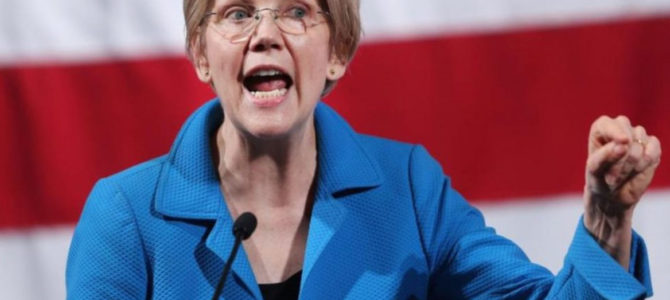
The first big takeaway from the Democratic primary debate Tuesday night was that Sen. Elizabeth Warren is now being treated like the frontrunner by her opponents. The second big takeaway is that the candidates’ angle of attack on Warren, together with her dismal performance under pressure, should have Democrats very worried that Warren could be their candidate in the general election next year.
Warren was taken to task during the debate for evading basic questions about how she would pay for her signature Medicare-for-all health-care plan, and how she would implement her controversial—and constitutionally dubious—wealth tax. For a candidate who brags about having a policy plan for everything, it didn’t look good.
Sen. Amy Klobuchar called Warren’s health-care plan a “pipe dream” and offered her a “reality check” on her wealth tax, attacks that were echoed and reinforced by the other candidates throughout the night. When Mayor Pete Buttigieg asked Warren, “yes or no,” whether her Medicare-for-all plan would raise taxes on the middle class, Warren hemmed and hawed, talked about her “principles,” and evaded giving a yes or no answer.
Buttigieg and others seized on this, calling into question Warren’s trustworthiness. When Sen. Bernie Sanders jumped in to explain that his universal health-care plan would increase taxes, Klobuchar and Buttigieg noted that at least Sanders was being honest and straightforward about his plan. Through it all, Warren seemed defensive and taken aback that her fellow candidates were coming after her like this.
The reason all this should concern Democrats is that if Warren can’t handle pointed questions about basic aspects of her major policy proposals in a primary debate, how is she going to weather the storms of the general election? If she can’t bring herself to admit that Medicare-for-all will mean higher taxes for everyone, which it certainly will, how will general election voters already skeptical of Washington be persuaded to trust her?
Trump won a crowed GOP primary in 2016 in part by saying things no other candidate was willing to say and putting himself forward as an honest outsider who tells it like it is. If Democrats want to put someone up against Trump who can beat him at this game, their candidate had better have a credible answer for how he or she will pay for a $32 trillion program that’s steadily losing support. The most recent poll from the Kaiser Family Foundation found just 51 percent now support Medicare-for-all, a two-point drop from last month and a five-point drop since April, even as the share of those who oppose it is growing.
Questions about how Democrats plan to pay for these things are only going to intensify as we approach the general election, and as more Americans realize that they’ll certainly have to pay higher taxes for socialized health care and college, such policies will likely continue to lose support.
Much has been made so far in the Democratic primary about “electability” versus “progressive bona fides,” with former vice president Joe Biden filling the role of the most electable Democrat in a one-on-one contest with Trump. Warren and Sanders, whose plans on everything from health care to the Green New Deal involve a massive expansion of government spending and authority over a sprawling array of activities, excite the Democratic Party’s progressive base.
Now that Warren is the clear frontrunner, the problem facing the party is impossible to deny: the candidate who can win the primary by being furthest to the left is going to have serious problems in the general.
The mainstream media aren’t doing Warren or Democrats any favors by continuing to treat her with kid gloves. The Washington Post’s Margaret Sullivan suggested that journalists’ questions about funding Medicare-for-all shouldn’t make Warren look bad or enable Republicans to exploit the issue. “Of course, it’s legitimate to dig into the costs, but not in a way that creates a nice GOP campaign ad, and misses the larger lens of overall costs. (Warren, notably, refused to take the bait.)”
This sentiment was echoed by Jay Rosen, who claimed that trying to pin Warren down on whether her policies would raise taxes on the middle class should be a “credibility killer”—for the press!
On the contrary, the idea that questions about the cost of major policy proposals might be exploited in the general election is a good reason to hash them out in a primary debate. It’s sort of the point of primary season. And it’s not “taking the bait” for Warren to give an honest and straightforward answer about how to pay for her signature policy ideas.
The longer Warren remains the frontrunner, the more these questions will come up. Her inability or unwillingness to give honest answers should concern Democrats who need to persuade non-leftist Americans to support their nominee. As things now stand, Warren herself created a few nice GOP campaign ads Tuesday night.









